What Is Tianeptine?
Tianeptine is a tricyclic antidepressant developed in France in the 1960s. In countries like Russia, Italy, and Argentina, it’s used to treat depression, anxiety, and irritable bowel syndrome under strict medical supervision. It was thought to increase serotonin reuptake, though new findings suggest it may interact more directly with opioid receptors.
According to Wikipedia, Tianeptine acts on the brain’s mu-opioid receptors in high doses, much like prescription opioids do. That’s why it produces euphoric effects in some users, but also why it leads to addiction, dependence, and overdose.
The key difference is how it’s used abroad vs. how it’s misused in the United States. Overseas, it’s prescribed in low doses by physicians. In the U.S., it’s purchased without oversight and consumed in large, uncontrolled amounts often with the mistaken belief that it’s a safe mood booster.
This misunderstanding has created a dangerous pattern: people self-medicating for anxiety or depression, only to find themselves physically and emotionally dependent on a substance they didn’t realize was so powerful.
The Risks: Why It’s Called “Gas Station Heroin”
Tianeptine earned its grim nickname “gas station heroin” because of how it mimics the effects of opioids and how widely it’s sold in everyday places like corner stores and smoke shops.
In the U.S., Tianeptine is not approved by the FDA, but it’s sold anyway, often disguised as a dietary supplement. It goes by names like “ZaZa,” “Tianna Red,” or even “Neptune’s Fix.” The problem is, many users think they’re buying something benign to boost mood or energy. In reality, they’re taking something highly addictive and potentially fatal.
According to the AP News, calls to poison control centers related to Tianeptine have spiked dramatically. Some states like Michigan and Alabama have banned it, but it remains available in others, thanks to loopholes in supplement regulations.
The FDA’s consumer warning stated clearly: “Tianeptine can cause dangerous health effects, including agitation, drowsiness, confusion, sweating, rapid heartbeat, high blood pressure, nausea, vomiting, and slowed or stopped breathing.”
Newsweek adds that even small overdoses can mimic the effects of heroin and trigger life-threatening side effects like seizures and unconsciousness. Tianeptine, simply put, is not safe for unsupervised use.
What the Withdrawal Feels Like
If someone is taking Tianeptine regularly, stopping suddenly can be terrifying. Withdrawal doesn’t just come with physical symptoms it can shake a person to the core.
Reports from individuals and clinicians describe withdrawal from Tianeptine as emotionally devastating and physically grueling. The symptoms include:
-
Severe muscle aches and cramps
-
Cold sweats and shaking
-
Nausea and vomiting
-
Restlessness and insomnia
-
Intense anxiety and panic
-
Deep depression and suicidal thoughts
Unlike prescription medications that are tapered off under medical guidance, Tianeptine is often used in isolation, without any medical oversight. That makes withdrawal especially dangerous. And because the drug is so easily accessible in convenience stores and online, many people don’t even realize they’re dealing with a substance that acts like an opioid.
If someone you care about is going through these symptoms or seems unable to stop using on their own, this may be the moment to step in gently, but firmly.
The Solution: Help That Starts with Compassion
At Crosswell Interventions, we believe every individual and every family deserves a path to healing especially when that path feels unclear.
Tianeptine dependence can feel isolating and confusing. Many families don’t know what to do or how to help their loved one. That’s where our experienced interventionists come in. We don’t just confront addiction we facilitate thoughtful, compassionate action rooted in expertise and empathy.
We provide drug and alcohol intervention services across the U.S., with a strong presence in Austin, Texas. Our programs are not about blame. They’re about guidance, clarity, and next steps toward recovery.
“We’ve worked with families facing overwhelming situations where the substance use wasn’t even recognized at first. Tianeptine is one of those cases. Our role is to open a door not just to treatment, but to understanding and lasting change.”
— Will Crosswell, Founder of Crosswell Interventions
What To Do If You’re Concerned
-
Pay attention to mood changes, erratic behavior, or physical withdrawal symptoms.
-
Look at what’s in your loved one’s medicine cabinet or gym bag. If you see labels like “ZaZa,” “Tianna Red,” or “Neptune’s Fix,” it’s time to talk.
-
Don’t confront alone. Consider working with a professional interventionist who can guide the process carefully and respectfully.
-
Reach out for support. The earlier the intervention, the better the outcome.
We understand that taking the first step can feel daunting. But we’re here to help guide that step one family at a time.
Need Help Now?
Visit crosswellinterventions.com to learn more about our services, or contact us directly for a confidential consultation.





